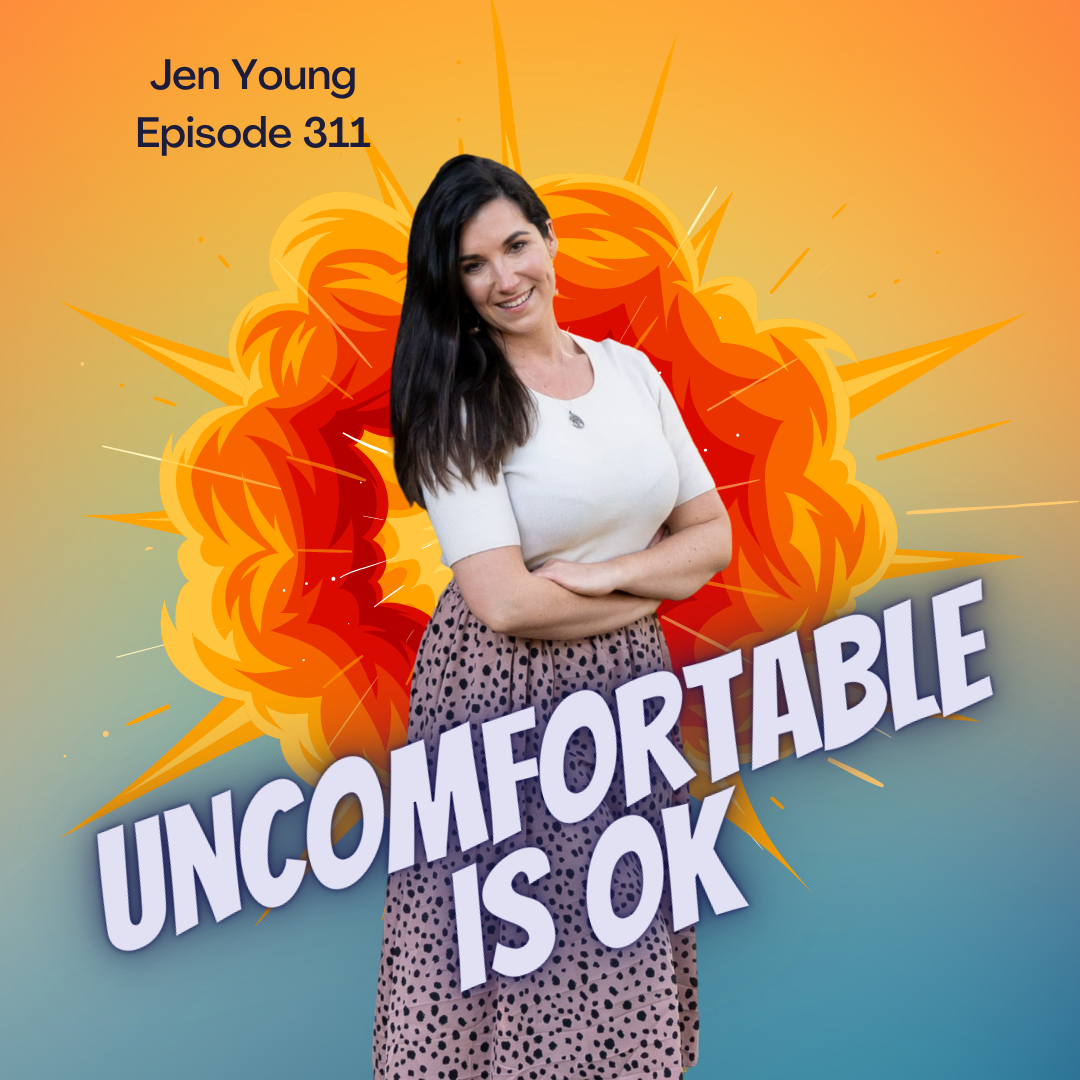Show Notes
Recently I spoke with Anna Guenther, CEO and chief bubble blower of PledgeMe, a New Zealand based crowdfunding platform “helping Kiwis fund the things they care about”. I’d been wanting to chat with Anna for quite a while, her name was on the “potential awesome podcast guests” list that I keep for myself. I’d been reluctant about reaching out as I’d heard she was super busy and had thought, “Why would a CEO give up their time to chat with me if I’m just reaching out to them cold?”
Thankfully one day I managed the courage to reach out to ask if she’d be interested in coming on the show. The reply I received back the next day was awesome “Ha! I’m pretty used to being uncomfortable! I could catch up early next week if you’d like?” We caught up down at Creative HQ in Wellington and sat down to find out a bit more about each other over a cup of peppermint tea before the meeting room we were going to chat in freed up. I don’t know what I’d felt so uncomfortable about as we discussed favourite podcasts, why we liked them and why we didn’t, as well as what we were going to try at “Wellington on a Plate”.
When we got stuck into the podcast conversation we talked a bit about Anna’s background, her accent belies the fact she is from Dunedin. Then we got into the origin story of PledgeMe, it’s an interesting story and you can listen to it here. But as you know it’s the uncomfortable stuff around it that I find interesting. Anna discussed heaps of great ideas, but these ones are popping up for me at the moment with where I am at.
“That felt like the validation point where we could really start telling people about it”
There came a time in the development of PledgeMe that Anna and her co-founder were convinced that this was something that could really work. The idea was validated in their minds and they could really start to push it. It’s a tipping point that I’m sure a lot of us face when we come up with an interesting idea. I know it was when I started up podcasting. I had all sorts of thoughts going through my head; Who is going to want to talk with me on the show? Who is going to want to listen to me? Do I have the technical skills to pull this off? Do I have enough interesting things to talk about to pull this off?
The easiest things to measure were, if I could get people to come and have a conversation with me, and how many people were downloading the episodes. For some reason I set myself the target of getting 10 people to speak with me before putting out any episodes. I figured that if I could convince 10 people that I might be interesting to chat with, then I could probably go on convincing people. Looking back, I’ve put out over 70 episodes to date and have spoken with over 60 guests. I’d also set myself the target of trying to get 50 downloads for each episode, I have no idea why I chose that as my validation number (although I do have a big family, so maybe I thought that if I had that many at least someone that wasn’t related to me was probably listening). The first few episodes hit that number quickly and all of the others have surpassed it, some by quite a significant amount.
Hitting these validation targets is important as it helps with our confidence levels and keeps us engaged and the momentum going on our ideas. The challenging thing is where this validation target lies? Set it too close and it may be an idea that you keep pushing towards that you should let go. Set it too far away and if you don’t hit it early then you might find yourself getting disheartened and drifting away from a great idea. I don’t have any earthshattering advice about this, instead focus on a target that is a decent challenge for you to hit, but still well below where you want to end up
“There is healthy stress which makes you think differently and push harder”
We talk about stress often, and I don’t know about you but for me the word often brings up negative connotations. The concept of stress is often frame in a way that it is bad to experience. This isn’t always the case as having some stress is often a good thing when we are working towards something.
Think about a deadline of something you have been working on, this deadline creates a sense of stress around time for us. Being in this state of stress will often increase my effectiveness and my creativity. It forces me to focus my energy and concentration on the topic at hand, getting the job done. Having this pressure on me often forces me to come up with slightly different ways of doing things to the way that I would normally just plod through a task, sometimes this new way increases my efficiency or output in the future. If I didn’t have this stress on myself then I find my concentration wandering off and getting distracted with a whole lot of sparkly things. As a bit of a test I’ve set myself a time deadline to write this post by to see if I can train my focus by putting myself under some stress. It seems to be working so far. I’m perceiving this stress as a beneficial stress for me. I know it’s not damaging and I can use it for my advantage to get something productive done.
The problem is when I don’t manage my stress levels well. This healthy stress that use to my advantage, called Eustress, can turn into distress. The stress is the same in this instance, I have a deadline coming up. However my response to it differs. I perceive the stress as negative, that it is problematic to me. When I do this I find myself getting flustered, my ability to perform drops away and I get distracted easily. My ability to manage my stress levels depends on a lot of things, what I’ve been eating, how well I’ve slept, what else is going on in my life, if I’ve moved my body recently. But the largest influence on how I manage is my perception of the stress as either positive or negative. If I can ship my perspective so that this stress is a positive thing for me, then I can harness it to improve my performance.
It’s not good to be under stress all the time, even if it is the healthy kind. It’s important to have time when not stressed to relax, but also to reflect and take away learnings about how I handled the situation and what I might do differently next time. Each time I am under stress it’s an opportunity to train myself to get better at dealing with it.
“We should be having robust conversations about everything, diversity of perspective is so important”
BOOM! Not so long ago it was thought everything that was known was all that there was. How things have changed, the earth is no longer flat, the sun does not revolve around the earth, and women are capable of making at least as informed choice about who to vote for as men are.
I used to be very guilty of adhering to just one perspective. In my early to mid-twenties I was stuck in a very fixed mindset and thought that the way I was doing things was the way I was supposed to be doing things. It didn’t serve me well, and I ended up being a pretty boring, unhealthy person, some may even argue a bit of a dickhead! Over the years since then, my perspective has gradually changed. It’s changed through conversations, whether this being through having robust discussions with people, or listening to differing viewpoints.
This is the way the world has changed over time, through having these discussions. The things I mentioned before have all been proven, but when the concept was first floated they hadn’t been and it was only though robust conversation that the world was convinced.
Now I try my best to jump into robust discussion about topics. I may not always change my perspective as a result of having these discussions, but at least I’m at a point now where I recognise the importance of taking the time to listen and engage.
Listen to the full episode here.
Host: Chris Desmond
Support the show on Patreon



